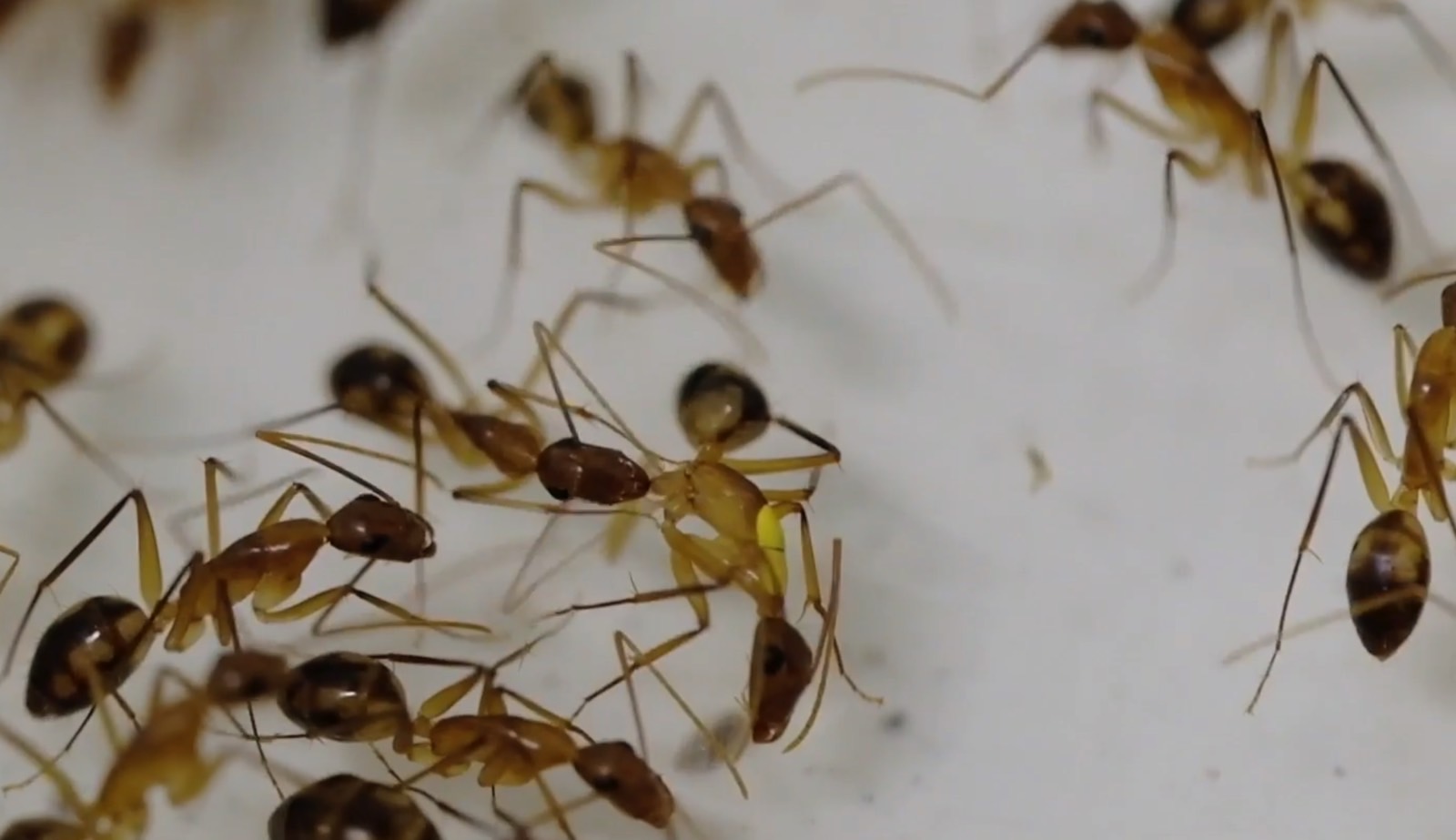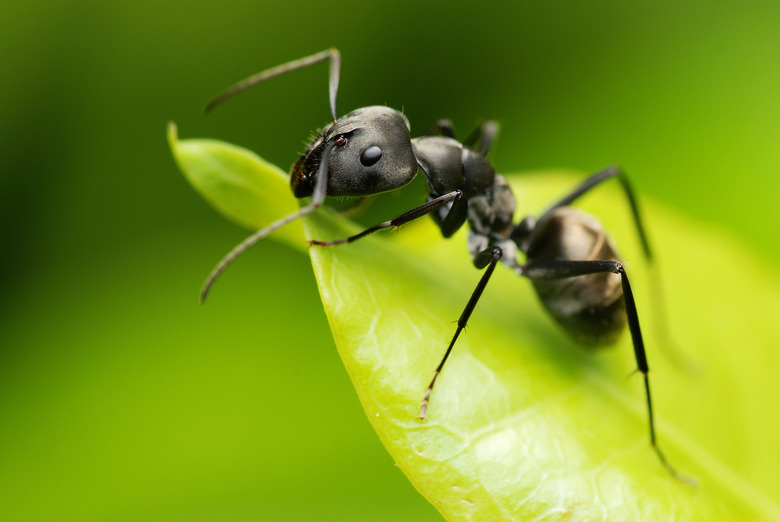Ants Observed Performing Limb Amputations To Save Other Ants' Lives
Humans are no longer the only species on Earth that can perform surgery to save lives. A new study says that certain species of ants can not only detect injuries in colony members but also decide whether an amputation surgery is needed to save that ant's life.
Unlike humans, the ants don't have to go to med school beforehand, and any ant in the colony is capable of conducting these seemingly basic medical interventions to ensure the survival of another fellow ant.
Researchers from the University of Würzburg in Germany observed last year that an African ant species, Megaponera analis, can treat infected wounds with antimicrobial substances they produce in their glands. For the new experiment, the same researchers chose a different ant species: Florida carpenter ants (Camponotus floridanus).
The researchers looked at two types of wounds located in different places on the ants' legs: the femur and the tibia. They also infected the wounds with bacteria that would otherwise kill the ant that sustained the injury.
The scientists observed that the ants could detect that one of their nestmates had sustained an injury and were potentially infected. Depending on the location of the wound, the ants that detected the injury would then decide the proper course of action.
A wound in the femur would lead to amputation. On average, the ants would spend roughly 40 minutes biting off the leg of the injured fellow. However, if the injury occurred lower on the tibia, the ants would decide to just clean the wound rather than cutting off the limb.
"When we're talking about amputation behavior, this is literally the only case in which a sophisticated and systematic amputation of an individual by another member of its species occurs in the animal kingdom," study author Erik Frank said in a statement, per Live Science.

The researchers observed that amputation of a limb suffering from an infected femur wound would significantly increase the chances of survival for the patient. The ants amputated 21 of the 24 femur-injured ants, and all 21 survived. The three that didn't get surgery died. It's unclear why three of these Florida carpenter ads did not get surgery.
Comparatively, none of the 24 tibia-injured ants had their limbs amputated. The researchers realized that the ants already knew that cutting the leg of an infected nestmate with a tibia wound would not work.
Lab experiments showed that amputations for tibia-injured ants needed to occur soon after the accident to reduce mortality.
While the ants know how to perform the surgery, it still takes them 40 minutes to amputate a leg. By that time, the infection would have spread to the body of the infected nestmate, and the amputation would be pointless. This certainly mimics the approach humans take when deciding whether a surgical intervention has merit.
But why would thigh injuries benefit from amputation surgery in ants compared to tibia wounds? The researchers speculated that the muscles surrounding the femur have a larger surface area than those around the tibia.
When the muscles are wounded, the blood flow in the femur section might slow down. Therefore, the bacteria might take longer to reach the rest of the body. The other ants have time to act and amputate the entire leg.
A wound at the tibia level would not impact blood circulation similarly. Therefore, the bacteria would spread faster. The ants would have no chance of getting rid of the injured limb before it's too late, so they resort to treating the wound locally.
Experiments showed that local treatment was able to lower the bacteria load in tibia-injured ants. However, the pathogen load was significantly lower in femur-injured ants with amputated limbs.
The results are incredible, showing the advanced behavior of ant societies when treating their own following accidents and infections. You can find the full study in Current Biology, complete with videos that show the ants treating an injured nestmate, including performing surgery.
